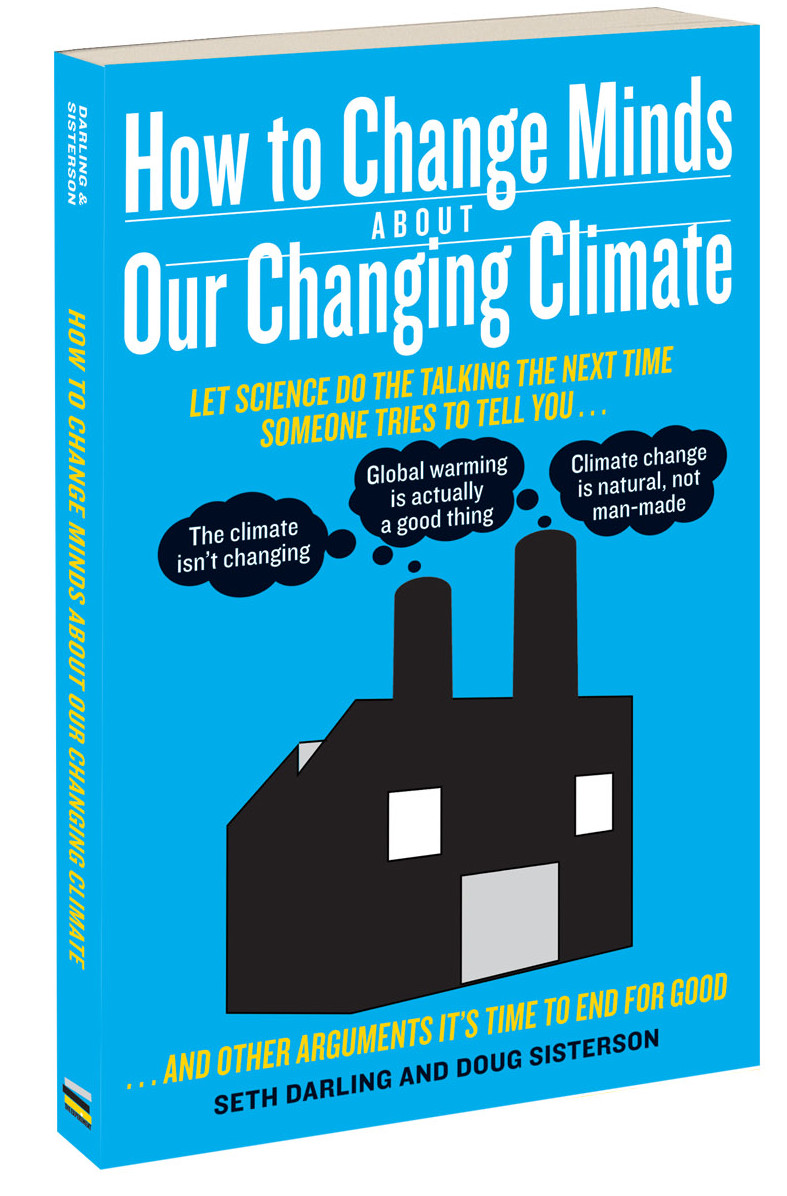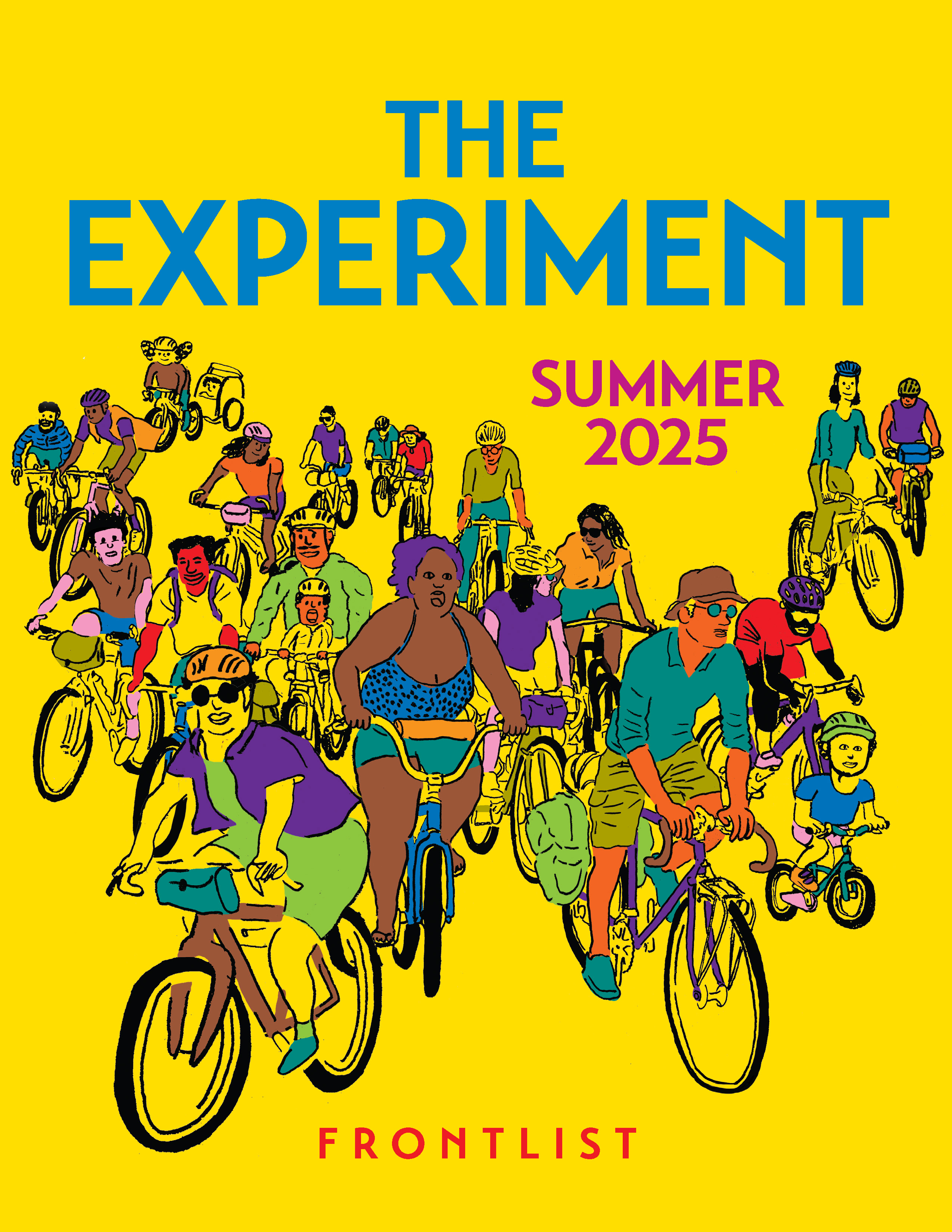This guest blog comes from Seth Darling, a scientist specializing in energy and water research and co-author of How to Change Minds About Our Changing Climate.
“Laudato Si,” Pope Francis’ recently released encyclical on the environment, shines the Vatican’s glaring spotlight squarely on humankind’s disruption of our climate. And it won’t be the first time—although you might think so from the uproar among many conservative politicians. His predecessors John Paul II and Benedict XVI themselves expressed increasingly dire concern regarding our abuse of the earth’s atmosphere and environment.
The Church’s “integral ecology” views climate disruption as a moral issue; caring for our fellow humans means caring for our environment. Because addressing climate change will mean massive changes to our energy infrastructure, which is currently dominated by fossil fuels, business interests vested in fossil energy feel threatened, and they are mobilizing their proxies in response. So, in an unusual twist, politicians like James Inhofe, chairman of the Senate Environment and Public Works Committee and a vehement climate change skeptic, attack the Pope with statements such as “The Pope ought to stay with his job, and we’ll stay with ours.” The irony of implying that science is in fact the Senate’s job, rather than legislating, was apparently unintentional.
Sen. Rick Santorum, a Republican presidential candidate and devout Catholic, stated on a Philadelphia radio show that “when we get involved with political and controversial scientific theories, then I think the Church is probably not as forceful and credible.” These sentiments are echoes of the business-bankrolled Heartland Institute’s efforts to sway Pope Francis from the tenet of integral ecology. The truth is that the science of climate change, although most definitely political, is anything but controversial.
Our planet is warming, and greenhouse gas emissions from the burning of coal, oil, and natural gas are the biggest culprits. The situation is already grim, and it’s getting worse all the time. We can debate which solutions to climate disruption offer the greatest benefit, but not whether there is a problem. That case is closed. But there is a bigger question here: who can speak for science?
Climate scientists, in particular, have the credentials to speak authoritatively on the issue of climate change, but are they the only ones? (The idea that the entire field is embroiled in a conspiracy to frighten taxpayers into increasing their research funding is so ludicrous it renders even this parenthetical a waste of space.) Leading conservative politicians from Mitch McConnell to Marco Rubio to Bobby Jindal have all trotted out the excuse “I’m not a scientist” when asked about climate change as a means of avoiding both overtly refuting the scientific consensus and, unfortunately, taking action. This tactic has the additional, subversive effect of hinting that the science is unsettled without saying so explicitly.
You don’t have to be an astrophysicist to talk about the earth revolving around the sun. Being a scientist is not a prerequisite to talking about science that is overwhelmingly certain. The charge is not to perform a scientific study, rather, it is simply to communicate established science to others. If we want to understand the complex role of aerosols on atmospheric warming, let’s ask the climate scientists; if we want to spread the word that the atmosphere is warming, who better than those with large audiences and a mandate to improve society for our fellow humans—politicians and, surely, the Pope.
The Roman Catholic Church has an enormous flock—estimated at 1.2 billion—and a papal encyclical is a powerful tool for mobilizing a global effort. Science and the Church haven’t always seen eye-to-eye, but as a society, we must seize the opportunity afforded by the confluence of interests outlined eloquently in Laudato Si. Pope Francis’ pulpit can amplify the alarm raised by the scientific community. The IPCC’s Fifth Assessment Report, released last year, was the community’s strongest statement to date. It summarizes mountains of climate science studies and finds a changing climate caused by human activity and lays out its frightening consequences.
All of this is coming to a head. The 2015 United Nations Climate Change Conference will be held in Paris later this year. The objective of the 2015 conference is to reach, for the first time in over two decades of international negotiations, a binding and universal agreement on climate action. The Vatican’s voice has joined the chorus. Let’s hope it drowns out the skeptics, erases the false debate, and brings together our diverse planet to address the greatest challenge we have ever faced as a species. This opportunity is too big, too important to miss.
 Seth B. Darling received his PhD in physical chemistry from the University of Chicago, after which he was awarded the Glenn Seaborg Distinguished Postdoctoral Fellowship at Argonne National Laboratory in Illinois. He is now a scientist in the Center for Nanoscale Materials at Argonne National Laboratory and a fellow at the Institute for Molecular Engineering at the University of Chicago. His research touches on many aspects of molecular science and engineering, with a particular focus on solar energy. He is co-author of How to Change Minds About Our Changing Climate.
Seth B. Darling received his PhD in physical chemistry from the University of Chicago, after which he was awarded the Glenn Seaborg Distinguished Postdoctoral Fellowship at Argonne National Laboratory in Illinois. He is now a scientist in the Center for Nanoscale Materials at Argonne National Laboratory and a fellow at the Institute for Molecular Engineering at the University of Chicago. His research touches on many aspects of molecular science and engineering, with a particular focus on solar energy. He is co-author of How to Change Minds About Our Changing Climate.


